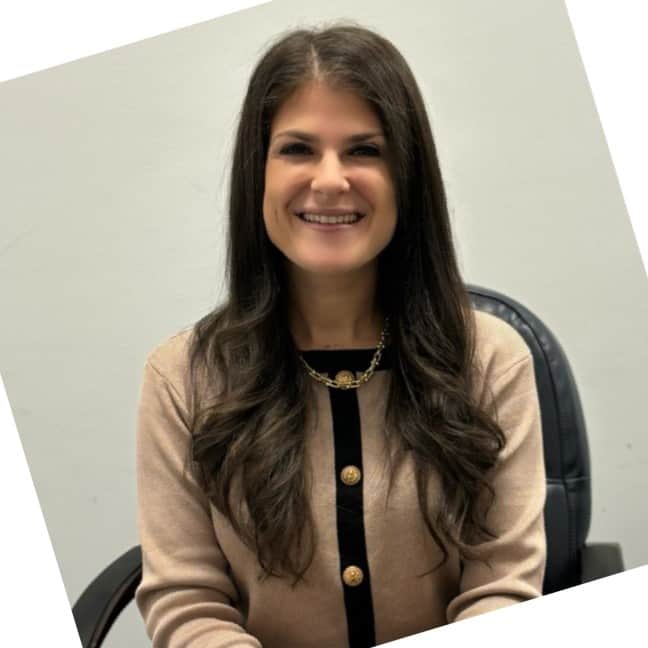Is Marijuana Addictive?
Despite what people may think, marijuana has the potential to be addictive. According to the National Institute on Drug Abuse, current research indicates that roughly 30% of individuals who use marijuana may experience some level of marijuana use disorder. This risk is significantly higher for those who start using marijuana before turning 18, with these individuals being four to seven times more likely to develop a disorder compared to those who begin using in adulthood. The heightened potency of modern marijuana strains – regardless of whether it’s a cannabis sativa plant or an indica strain – is another one of the risk factors for marijuana addiction, underscoring the importance of awareness about the dangers and the necessity of seeking professional assistance if required.
Researchers also know that prolonged and heavy cannabis use can change brain circuitry. The primary psychoactive component in marijuana, THC, interacts with the brain’s endocannabinoid system, which regulates mood, memory, and reward. Over time, persistent marijuana use can lead to changes in the brain’s structure and function, mainly in areas involved in decision-making, learning, and regulating emotions.
We’ve Helped Thousands of Individuals Overcome Drug and Alcohol Addiction
Signs and Symptoms of Marijuana Abuse
Recognizing the signs and symptoms of marijuana abuse is crucial for early intervention and effective treatment. These signs of substance use disorders can be both physical and psychological, manifesting in various ways that impact an individual’s overall well-being and daily functioning. The following are some of the most common signs and symptoms of marijuana abuse that could lead a person to need help from a marijuana addiction treatment center:
- Increased tolerance
- Experiencing withdrawal symptoms when cutting back
- Loss of control over marijuana use
- Spending a lot of time dealing with marijuana (i.e., getting high, finding marijuana)
- Isolating from friends and family members
- Changing social circles to include only those who use marijuana
- Regularly using marijuana as a means to escape the person’s life and stressors
- Lack of attention to responsibilities
- Lying, cheating, and/or stealing to get marijuana
- Trying (but failing) to cut down on use
Identifying these indicators can help to recognize when it may be necessary to seek treatment for marijuana addiction.
Short and Long-term Effects of Marijuana
The effects of marijuana can be broadly categorized into short-term and long-term consequences. Understanding these effects can help individuals see the potential consequences that come with marijuana abuse.
Short-term Effects
In the short term, if you smoke marijuana, it can lead to several noticeable physical and psychological effects. These include:
- Euphoria or an altered sense of time
- Increased sensory perception (e.g., colors may appear more vivid)
- Impaired memory and difficulty concentrating
- Dry mouth, red eyes, and increased appetite
- Heightened heart rate, which may pose risks for individuals with heart conditions
Long-term Effects
Marijuana use can have more profound long-term impacts on an individual’s health and well-being, including:
- Cognitive Impairments: Persistent use can affect memory, learning, and attention. According to the Substance Abuse Mental Health Services Administration, using marijuana during adolescence can actually result in an irreversible reduction in IQ by up to 8 points, and this cognitive decline does not reverse even after stopping marijuana use.
- Respiratory Issues: Marijuana smoke can lead to similar respiratory problems as tobacco, including chronic bronchitis and possibly lung cancer.
- Mental Health Conditions: Long-term marijuana abuse use can trigger and worsen psychosis and schizophrenia.
Other long-term effects could include the following:
Cannabis Intoxication Delirium
Cannabis intoxication delirium is a condition characterized by significant confusion, impaired attention, and disorientation resulting from acute cannabis use. This state can lead to distress and impair daily functioning, necessitating medical evaluation and appropriate intervention from a medical professional and a weed addiction rehab center.
Cannabis-Induced Anxiety Disorder
Cannabis-induced anxiety disorder is characterized by anxiety symptoms directly attributed to the use or withdrawal from cannabis. Individuals may experience intense fear, panic attacks, or general unease that significantly disrupts their daily activities and social functioning. These anxiety symptoms typically emerge during intoxication or shortly after stopping, and they must be severe enough to warrant clinical attention for it to be considered cannabis-induced anxiety disorder.
Cannabis-Induced Sleep Disorder
This disorder manifests when marijuana abuse disrupts normal sleep patterns, leading to difficulty falling asleep, staying asleep, or achieving restful sleep. Symptoms can include insomnia, vivid dreams, or disturbed sleep cycles, significantly impacting overall health and daily functioning.
Cannabis Use Disorder
Cannabis abuse, now called cannabis use disorder, is defined as a pattern of marijuana use leading to clinically significant impairment or distress. Occurring within 12 months, cannabis use disorder can manifest in at least two of the following:
- Using marijuana in larger amounts or over a longer period than intended
- Trying and failing to cut down or control drug use
- Spending a lot of time to obtain cannabis or recover from its effects
- A craving or a strong desire or urge to use marijuana
- Recurrent marijuana use has led to difficulty in fulfilling work, school, or home obligations
- Continued use despite having social or interpersonal issues caused or made worse by marijuana use
- Giving up social, occupational, or recreational activities because of marijuana use
- Continued cannabis use even in situations in which cannabis is physically hazardous
- Continued marijuana use even though the person is experiencing physical or psychological problem that is likely to have been caused or exacerbated by cannabis
- Tolerance increases, meaning increased cannabis use is needed to achieve intoxication or desired effects
- Withdrawal symptoms when stopping the drug
Recognizing and addressing these patterns of drug abuse is crucial for mitigating potential health risks and improving overall well-being.
Recovery Starts at Our Drug and Alcohol Rehab by Requesting a Call
"*" indicates required fields
Can You Have Withdrawal Symptoms When You Stop Smoking Marijuana
You can experience withdrawal symptoms when you stop smoking marijuana. Marijuana withdrawal can present a range of uncomfortable symptoms that may pose challenges for individuals attempting to quit. One of the most common features of cannabis withdrawal is anxiety, which can manifest as heightened worry or restlessness. Irritability and anger or aggression are also frequently observed, making it difficult for individuals to manage daily interactions calmly.
Disturbed sleep patterns, including trouble falling asleep and vivid or unpleasant dreaming, can significantly disrupt an individual’s rest.
Additionally, withdrawal may lead to a depressed mood, characterized by feelings of sadness or hopelessness, and a noticeable loss of appetite, resulting in reduced interest in food. Understanding these symptoms can be crucial for those seeking to navigate the withdrawal process and achieve a successful recovery.
Types of Marijuana Addiction Treatment We Offer for Substance Abuse
Navigating the journey to recovery from marijuana addiction requires a tailored approach that addresses each individual as a whole. The following are the types of marijuana addiction treatment we offer at Right Path Recovery:
Detox Rehab for Weed
Marijuana detox is the initial phase in the treatment process. During detox for weed, individuals rid their bodies of marijuana and other toxins under medical supervision. This phase addresses the physical dependency on the substance and helps manage withdrawal symptoms safely.
Residential Rehab for Weed
Inpatient treatment provides a structured environment where individuals can focus entirely on their recovery. This residential treatment program offers 24/7 support, individual therapy sessions, family therapy sessions, group therapy sessions, and medical care, allowing patients to immerse themselves in a community dedicated to sobriety and wellness while they’re in rehab for weed. In some cases, marriage and family therapists will be involved as well for those who abuse marijuana and their loved ones.
Partial Hospitalization Program (PHP)
PHP offers intensive outpatient programming for addiction and drug abuse while allowing patients to return home in the evenings. This type of marijuana rehab includes several hours of group therapy sessions and individual counseling each day, focusing on both medical and psychological aspects of marijuana addiction while maintaining a level of independence through outpatient treatment.
Dual Diagnosis
For individuals with co-occurring mental health disorders and substance abuse issues, dual diagnosis treatment addresses both conditions simultaneously, offering marijuana addiction treatment and mental health services. This integrated approach ensures that all aspects of a patient’s health are considered and treated concurrently, improving the chances of successful recovery from marijuana use and mental health conditions.
Aftercare
Aftercare programs continue to support individuals once marijuana rehab has been completed. These programs may include continued individual and group therapy, support groups, and regular check-ins with counselors to help maintain sobriety and prevent relapse back to the addictive substance.
Relapse Prevention
Relapse prevention strategies are crucial in maintaining long-term recovery. These can include coping strategies, stress management techniques, and ongoing support through therapy or support groups. Relapse prevention helps individuals recognize triggers and develop healthy responses, reducing the likelihood of returning to substance use.
Successful marijuana addiction treatment requires a comprehensive and multifaceted approach. By offering a range of weed rehab programs at our treatment facilities, we can provide the necessary support at every stage of recovery. If you think you need marijuana abuse recovery, learn more by reaching out to us.
Contact Right Path Recovery For Help Today
Taking the first step toward recovery is the most important decision you can make if you’re struggling with alcohol abuse or addiction to marijuana or other drugs. At Right Path Recovery, we are committed to providing compassionate and effective care for all your needs. Our dedicated team of professionals is ready to support you through every stage of your journey to sobriety and wellness. Don’t wait – reach out today to begin your path towards a healthier, happier future by seeking treatment for your substance abuse disorders from our marijuana addiction treatment center.

Insurance Can Cover up to 100% of The Costs of Addiction Treatment and Mental Health Care
Did you know that insurance can cover up to 100% of the costs of addiction treatment and mental health care? Our addiction treatment center accepts most insurance plans. For a free insurance benefits check complete our confidential insurance verification form by clicking the link below.













